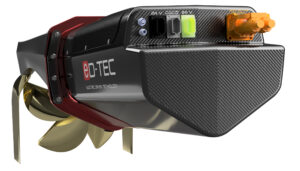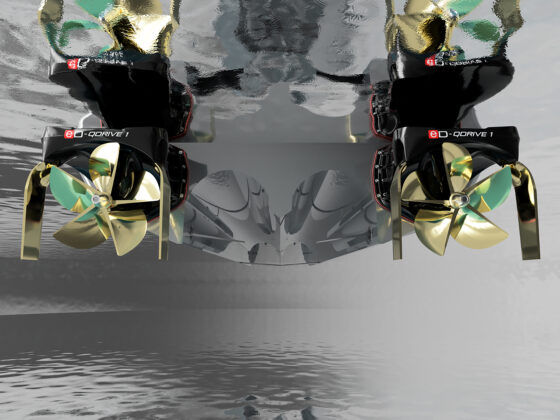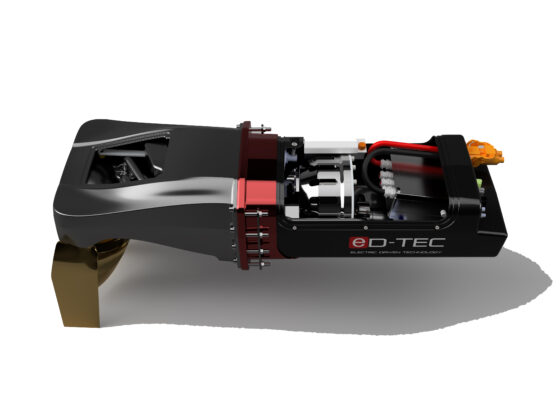
eD-TEC showcases integrated electric drive system

Electric propulsion specialist eD-TEC showcased its new eD-QDrive propulsion system for the first time at METSTRADE which closed yesterday (17 November).
The eD-QDrive is an electric drivetrain comprising a “complete system”, from surface drive unit mounted through the transom to the battery system, AI controller and helm interface.
The system, designed in-house by the team at German start-up eD-TEC, has been conceived to offer an electric drive solution to the boating industry for yachts from small dayboats and tenders to performance cruisers up to 30 metres in length.
eD-TEC says the drivetrain achieves this thanks to the modular and scalable design of the eD-QDrive units themselves and the high-C-rate battery bank, which allows for up to quad eD-QDrive installations for a power range from 50kW to 2,400kW, and a modular battery bank that offers power from 80kWh to 320kWh.

eD-TEC was founded by former VW Group chief strategy officer Michael Jost in 2021.
“Michael [Jost] really drove the change in the automotive industry and pushed the transformation of the entire VW brand,” says Marc Jost, chief strategy officer at eD-TEC. “But there’s a clear mismatch between transforming the automotive into a more sustainable market and then hopping on a vessel and blowing out diesel fumes. That led us to think about how one can achieve a sustainable drive train – or a sustained, measured method of propulsion – without sacrificing convenience, performance or range.”
The eD-QDrive system is available now for boatbuilders and other interested parties, and the first example of the system, installed in a 28-foot RIB, is due to be launched before the end of 2022.

“With the AI and software elements, we use similar principles to the electric vehicle industry where the hardware already installed can be upgraded as software is developed, enhanced by the continual data gathering and analysis in the cloud,” says Marc Jost.
“That also allows for the entire system healthcare, predictive maintenance and scheduling downtime to happen in advance and not in the time the customer wants to be using the vessel. Finally, the stackable battery banks run on an 800-volt bus which is future-proofed as you need the high voltage to offer fast charging capability. Our Technology Stack also includes the ability for two-way vessel-to-vessel charging, which will be available from 2024.”
